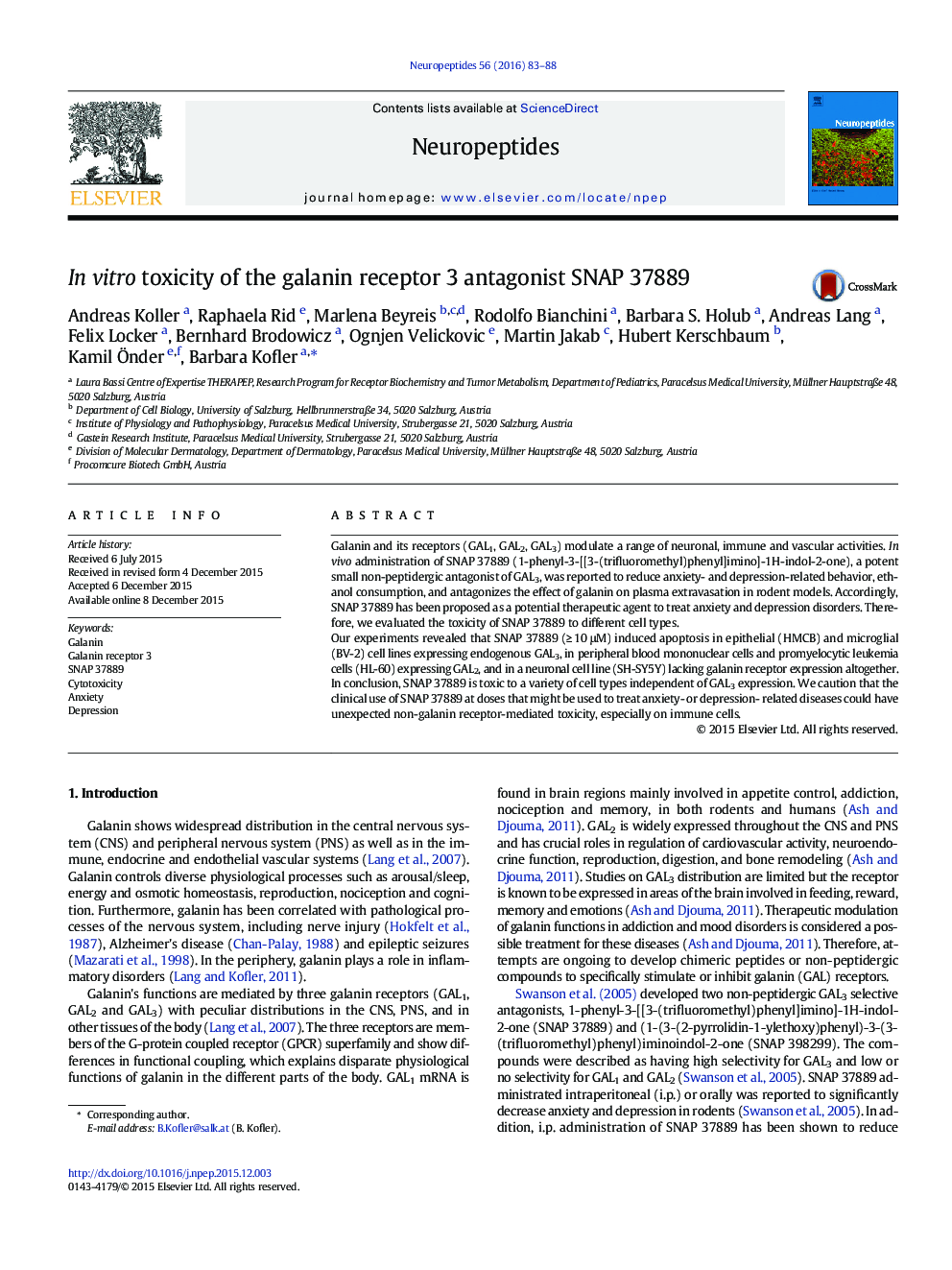| Article ID | Journal | Published Year | Pages | File Type |
|---|---|---|---|---|
| 2807947 | Neuropeptides | 2016 | 6 Pages |
•SNAP 37889 produces toxic effects in vitro.•The toxicity of SNAP 37889 does not depend on endogenous expression of galanin receptors.•Immune cells are sensitive to SNAP 37889-induced cell death.
Galanin and its receptors (GAL1, GAL2, GAL3) modulate a range of neuronal, immune and vascular activities. In vivo administration of SNAP 37889 (1-phenyl-3-[[3-(trifluoromethyl)phenyl]imino]-1H-indol-2-one), a potent small non-peptidergic antagonist of GAL3, was reported to reduce anxiety- and depression-related behavior, ethanol consumption, and antagonizes the effect of galanin on plasma extravasation in rodent models. Accordingly, SNAP 37889 has been proposed as a potential therapeutic agent to treat anxiety and depression disorders. Therefore, we evaluated the toxicity of SNAP 37889 to different cell types.Our experiments revealed that SNAP 37889 (≥ 10 μM) induced apoptosis in epithelial (HMCB) and microglial (BV-2) cell lines expressing endogenous GAL3, in peripheral blood mononuclear cells and promyelocytic leukemia cells (HL-60) expressing GAL2, and in a neuronal cell line (SH-SY5Y) lacking galanin receptor expression altogether.In conclusion, SNAP 37889 is toxic to a variety of cell types independent of GAL3 expression. We caution that the clinical use of SNAP 37889 at doses that might be used to treat anxiety- or depression- related diseases could have unexpected non-galanin receptor-mediated toxicity, especially on immune cells.
